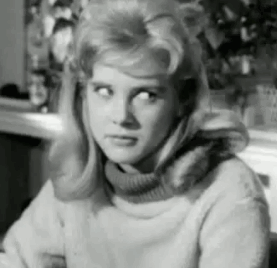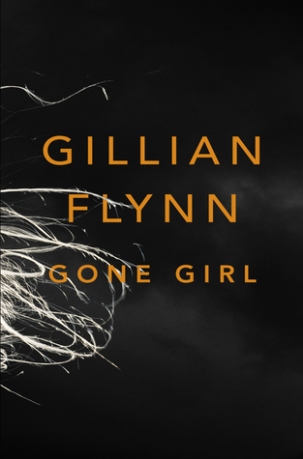Author: Lauren Oliver
Publisher: HarperCollins
Date Published: March 4, 2014
Number of Pages: 408
Standalone: Yes
What’s It About?
Each year in the dead-end town of Carp, NY, every student in the graduating class has the chance to enter Panic – a legendary, and dangerous game of luck and chance. Spurred by heartbreak and revenge Heather and Dodge enter the game. Every decision, every ounce of courage leads to new alliances, chances for romance and a shot in the dark at a way out of town.
Initial Thoughts
My first introduction to Lauren Oliver came in the form of her Delirium trilogy, of which I only ever read (and only half of it) the first book in the series. To many the books are killer, to me they were just, well dull. I found the concept to be beyond reaching and I really couldn’t get down with lead character Lena who I felt was whiny and cowardly. Harsh I know. I’m saying all of this because I was really reluctant to pick up Oliver’s newest book Panic but I’m glad I did.
Panic is nothing at all like Delirium, a standalone book – the overall concept, a mysterious and dangerous game (with a big payout) held for the graduating high school class in small town New York builds to a crescendo in an intense and riveting manner.
Told from the dual perspectives of contestants Heather and Dodge, playing for their own independent reasons, the book is a surprisingly intense commentary on youth and the way in which desperation of all kinds can drive a person to do things they never thought themselves capable of.
The concept is enthralling – Oliver manages to capture your attention from the very beginning. As the game progresses and the stakes are raised you find yourself becoming more and more invested in the characters and desperate to know the outcome.
Dual Narration
The dual narrative can at times come off a little gimmicky – for instance in Allegiant it was evident very early that the reason for the change in narrative style was because the end of the story couldn’t come from the character it had always come from. In Panic the dual narrative makes sense. It offers a great duality in reasoning for the various reasons these kids would put their lives in such danger for a cash prize. For many it’s seen as a way out of small town life for the story’s narrators it’s much more.
Heather
Heather is incredibly likeable. Suffering from heartbreak and a bad home life Panic is a way from her to step away from the stress of everyday life. It’s also a chance to provide a better life, away from her alcoholic/drug addicted mother, for her and her sister. As the story progresses Heather’s growth from wallflower to a confident, beautiful girl is striking yet organic.
Dodge
At first Dodge comes off a little slimy – you kind of recoil at the thought of him, but his is a great example of character development and how wrong first impressions can be. Loyal to a fault Dodge is determined, pragmatic and clever. His relationships with his sister, Heather and Nat (Heather’s best friend) paint him as loving guy with a great deal of respect for the opposite sex.
The Minors (characters)
Nat – Heather’s best friend, Dodge’s love interest – I’m not going to lie here. I kind of hated her. She’s incredibly self-involved and without spoiling anything – um, I can’t actually finish that sentence without spoiling things. Needless to say the gif below best describes my feelings about her.
Bishop
Heather’s other best friend, and the boy she’s obviously in love with but has yet to realize this fact (trust me I’m giving nothing away) is perfectly likeable but I will say his purpose in the story is fairly obvious – I have yet to determine if it was meant to be this way or if it’s just a weak link in the story. Whenever Bishop entered the scene I always found myself doing that twisty head thing that puppies do…: 
Anne, Krista, Lily
All three women play a vital role in Heather’s life, Krista – her mother is a disappointment, forcing Heather to play the parent role. Lily, Heather’s little sister though very minor and not as developed as other characters gives Heather purpose. And Anne – well she’s really awesome. Best way to explain her.
The Writing
There’s a reason people keep buying Oliver’s books, despite not being a fan of her earlier work there’s no denying she can write. In Panic she creates characters with meaning and reasoning. For every action there is a reaction, a reaction that continuously ups the ante. She also manages to create unique character voices. Both Heather and Dodge stand out so clearly as independent characters, yet when they’re brought together they mesh.
Oliver’s writing is also great for its intricacies. She adds in small details that provide so much for your imagination. The town of Carp is so beautifully illustrated by simple additives like Meth Row or as a friend pointed out Nat’s obvious OCD – which is never named but very evident.
The Elusive YA Standalone
What I think I particularly appreciate about Panic is that it’s a standalone – a concept that seems incredibly unique in the current world of YA overrun with dystopian trilogies. It’s nice to read a book and know that the end is really the end. There’s something to be said for an author who tells the story in one go, sometimes it just makes the story so much more rich.
The Final Judgement
Panic is a great story. It’s unique, engrossing and filled with interesting plot twists, strong and likeable characters. It’s the perfect concoction of mystery, suspense, romance and adventure. Throw in a little coming of age and a little revenge it kind of has a bit of something for everyone. If you’re looking for a tightly woven tale that builds to an ultimately explosive crescendo, you should probably pick up a copy. 4.5/5











